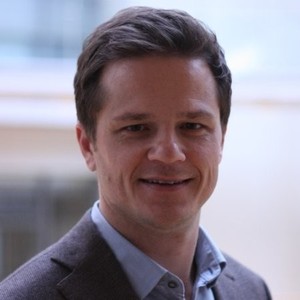Moving towards your North Star
November 30, 09:00-12:00
ABSTRACT
You will walk out of this workshop with
- a new view on your North Star @work
- an idea of how to embrace things you tried to avoid or fight @work
- a pool of feasible actions to move towards your values @work
Work as well as our private lives include many varying challenges and opportunities. The speed and the intensity of work and life events sometimes make it hard to stay in the driver’s seat. Who of us never encountered the feeling to be occupied by unproductive or unwanted work processes or personal interactions that “do not feel quite right” or that make you angry even before your really get into them? This often results in feelings like frustration or anger. In this workshop you will develop your Acceptance-Commitment-Training-Matrix, your North Star. We explicitly aim to take and enjoy some new and uncommon perspectives by being guided through a set of out-of-the-ordinary exercises. This evidence-based approach can help to engage in value-directed behavior and to experience a more fulfilling life@work (and life in general) including higher levels of motivation, wellbeing, and performance.
CONTENT
Throughout this workshop we will be looking at our values and our sometimes also painful thoughts, difficult emotional reactions and unproductive work processes, in order to identify activities that are dear and important to us and effective for us as employees, team members, colleagues, leaders, co-workers, but also to us as individuals in the context of family and friends.
Acceptance and Commitment Training encourages and supports us in accepting undesirable (internal) states that may stem from unalterable work demands, such as difficult customers or processes, disliked tasks or hard-to-work-with colleagues. These aspects often interfere with effective work-related behaviors and we feel like being driven into unwanted directions and activities. The values component of ACT can readily be used to help individuals to identify work-related goals and actions that enhance their work motivation and performance.
It may or may not be helpful to participants, but as Buddha already said: There no other way of finding out, except for putting it into (workshop) practice 😊!
The Buddha replied, “Friends, do not believe anything, even if it is recorded in the sutras or is taught by a famous teacher. Whatever you hear, you should use your intelligent and critical mind to examine it carefully, and then put it into practice for yourself. If you apply it and you see that you are liberated from your suffering and your difficulties, you will see clearly that it is indeed the truth, and then you can believe in it.”
Moderators:
 Gaby Wenneker (gaby.wenneker@sap.com):
Gaby Wenneker (gaby.wenneker@sap.com):
Gaby is the team manager of the Application UX Design Team (Digital Supply chain) and enjoys working for SAP for nearly 20 years now. As a trained psychologist she is curious and passionate about searching for new ways to integrate the latest psychological research into the daily work of the SAP employees to create enjoyable moments.
 Danielle Löw-Wiebach (danielle.loew-wiebach@sap.com):
Danielle Löw-Wiebach (danielle.loew-wiebach@sap.com):
Danielle is a project management and communication expert. With a background in sociolinguistics and user assistance, she is passionate about new work and all that has to do with it, has worked as a trainer for different training programs and has recently completed a fellowship with the Diversity & People Program team, HR Germany.
CANCELLED
 If you are interested in this kind of events, which are a little bit different to our ordinary events, please tell me.
If you are interested in this kind of events, which are a little bit different to our ordinary events, please tell me.
Eva-Maria Fahrer 922 52 539 or +46 70 569 78 08 or em(at)adfahrer.com
We will go through each quadrant and do one particular “guided exercise” for each of them, to allow participants to experience the different aspects of ACT and develop a first version of their own matrix.
- Connecting with individual values
- Observing difficult thoughts and discovering how to accept them
- Identifying unproductive behaviors
- Exploring valuable actions and committing to them
BTW, there is also a group variant for this method that could be applied in the future (“Prosocial Process”).
LITERATURE
ACT is based on extensive scientific research around the third wave of psychotherapy, focusing on values and committed actions and that is exactly why it is so applicable to our work life as well.
- Hayes, S. (2019). A Liberated Mind: How to Pivot Toward What Matters. New York: Avery.
- Wardley, M. N., Flaxman, P. E., Willig, C., & Gillanders, D. (2014). ‘Feel the Feeling’: Psychological practitioners’ experience of acceptance and commitment therapy well-being training in the workplace. Journal of Health Psychology, 1359105314557977.
- Bond, F. W., Lloyd, J., Flaxman, P. E., & Archer, R. (2016). Psychological Flexibility and ACT at Work. The Wiley Handbook of Contextual Behavioral Science, 459-482.
- Atkins, P. W.B., Wilson, D. S., and Hayes, S.C. (2019). Prosocial: Using Evolutionary Science to Build Productive, Equitable, and Collaborative Groups. Oakland, CA: Context Press.
- Flaxman & Bond (2010). Acceptance and Commitment Training: Promoting Psychological Flexibility Training in the workplace. Baer (ed). Assessing mindfulness and acceptance processes in clients: Illuminating the theory and practice of change. New Harbinger.
Contact Eva-Maria if you have questions or comments.
 Eva-Maria Fahrer
Eva-Maria Fahrer
SBN - SAP Brukerforening i Norge
em@sbn.no







